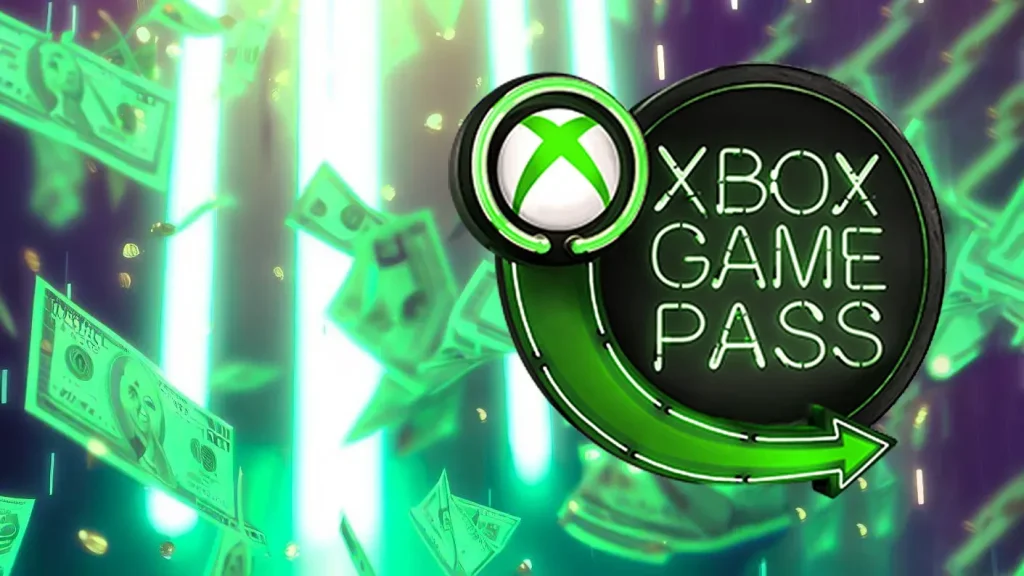Game Pass sustainability has become a hot topic in the gaming community, particularly after comments from Arkane Studios founder Raphael Colantonio who labeled Microsoft’s subscription service as an “unsustainable model”. As the gaming industry faces increasing concerns over its financial viability, Colantonio’s perspective highlights the potential damage that Game Pass could inflict on traditional sales models. Following recent Microsoft layoffs, many industry experts, including Larian’s director of publishing, are questioning how long the seemingly boundless resources supporting Game Pass can truly last. The subscription service model, while offering undeniable benefits to gamers, presents complicated challenges that could jeopardize smaller developers and independent studios. With calls for more sustainable practices echoed by industry leaders, the impact of Game Pass on the gaming landscape is under crucial scrutiny.
The ongoing discussion about the viability of Game Pass raises critical questions about the future of subscription-based gaming platforms. As companies like Microsoft adapt their business strategies, the implications for independent developers and larger studios alike cannot be ignored. Advocacy from industry figures, such as Colantonio and Douse, emphasizes the importance of reconsidering financial frameworks that underpin these services. While offering extensive game libraries and value to consumers, the sustainability of such models is being challenged, particularly in light of recent industry upheavals like significant layoffs. Understanding the balance between consumer benefit and developer health is pivotal in shaping a resilient gaming industry moving forward.
The Controversy Surrounding Game Pass Sustainability
Arkane Studios’ founder, Raphael Colantonio, has ignited a heated debate regarding the sustainability of Microsoft’s Game Pass subscription service. In recent comments, he labeled the model as ‘unsustainable,’ arguing that it could ultimately damage the gaming industry in the long run. Colantonio’s views are crucial, especially given the recent wave of layoffs at Microsoft and the uncertainty surrounding the gaming market. The concern is that while Game Pass offers a wealth of benefits for gamers, it relies heavily on Microsoft’s vast financial resources, raising questions about its viability without continued large-scale investment.
Many industry experts echo Colantonio’s sentiments, suggesting that the reliance on what they describe as ‘infinite money’ is a precarious position. The calls for sustainable models resonate deeply within gaming communities, as developers fear that such business practices may lead to reduced innovation and creativity in the industry. As the gaming industry grapples with ongoing economic pressures, understanding the implications of Game Pass’s business model is essential for developers and consumers alike.
Economic Impact of Game Pass on Game Developers
The emergence of subscription services like Game Pass has prompted significant shifts within the gaming industry, especially concerning developers’ financial frameworks. Raphael Colantonio highlighted the concern that Game Pass could cannibalize traditional sales, posing a risk to smaller development teams, which often rely on robust upfront sales to fund future projects. This ‘cannibalization’ phenomenon raises critical questions about whether developers can thrive in an environment dominated by subscription models without suffocating under economic pressures.
Colantonio’s frustration with early assurances from Microsoft regarding Game Pass’s impact on game sales underscores a shared skepticism among developers. Apparently, initial claims that the subscription service wouldn’t harm sales have since proven misleading, as many developers are now confronting real consequences of their games being available for a low monthly fee. This evolution of thought signifies a broader concern within the industry about how subscription services may alter revenue streams and potentially jeopardize long-term viability for many developers.
Microsoft Layoffs and the Future of Game Pass
The recent layoffs within Microsoft, affecting over 9,000 employees and including significant studio shutdowns, have raised alarms across the gaming sector. These developments are reflective of the potential instability tied to the Game Pass model as the company navigates a fluctuating marketplace. If Game Pass is indeed an ‘unsustainable model,’ the ripple effects could result in even more significant layoffs or studio closures down the line, mirroring concerns raised by Colantonio and other industry leaders.
As gaming studios respond to these shifts, understanding the long-term sustainability of Game Pass will be pivotal. The collaboration between companies needs a reevaluation of how gaming subscriptions impact not only consumer choices but also the job security and economic stability of the workforce behind those games. Developers and industry insiders worry that if these trends continue unchecked, they could lead to a homogenous market where only a few large entities thrive, further marginalizing smaller studios.
Game Pass Impact on Indie Developers
Subscription models like Game Pass can present a double-edged sword for indie developers. While access to a broader audience is undeniably appealing, the risk of reduced upfront sales may deter many from adopting this business model. Larian’s Michael Douse has noted that the perception of a lack of financial sustainability plays a significant role in keeping indies wary of shifting to Game Pass. Indeterminate futures and potential income loss can stifle creativity among smaller studios that already operate with limited budgets.
Furthermore, the very nature of releasing titles on Game Pass has led many indie developers to question whether their projects can achieve the recognition and success they deserve. They must grapple with the challenge of positioning their games in an environment where subscription offerings can overshadow new or riskier titles. As the conversation around the implications of Game Pass continues to evolve, it remains essential for the industry to find a balance that supports both indie developers and larger studios.
The Gaming Industry’s Response to Subscription Models
The rising influence of subscription services like Game Pass has evoked mixed reactions across the gaming industry. While some developers view these models as a means of reaching new players, others are skeptical of their long-term sustainability, as highlighted by Raphael Colantonio. The industry’s response includes a call for transparency, seeking assurance that moving to a subscription-driven model will not compromise game quality or the viability of independent studios.
Moreover, there is a growing demand for a balanced approach that supports both subscription services and traditional purchasing models. This balance could ensure diverse options for consumers while allowing developers to strategize revenue effectively. By leveraging feedback from within the industry, stakeholders can work towards a more equitable landscape that addresses the concerns raised by Colantonio and fosters innovation across all game genres.
Consumer Perception of Game Pass and its Benefits
Despite the controversies surrounding Game Pass’s sustainability, many consumers view the subscription service as an excellent deal that enhances their gaming experience. The ability to access a wide array of games for a single monthly fee presents an appealing option for players who may not want to spend premium prices on individual titles. This consumer-friendly approach could potentially drive higher engagement levels and diversify the types of games being played.
However, as Colantonio cautioned, this deal comes at a price that may threaten the overall health of the gaming ecosystem. If consumers become overly reliant on subscription models, it may lead to a generation of gamers who are disconnected from the traditional purchasing process, ultimately undermining the market for new games and innovative projects. Balancing consumer need with industry sustainability is crucial to ensure the long-term health of the gaming landscape.
The Role of Major Corporations in Shaping Gaming Futures
The interplay between major corporations like Microsoft and the indie game development community is significant in shaping the future of gaming. The monopolization of the market by a few key players often impedes the growth and innovation of smaller developers. The underlying concern is that without careful monitoring and balance in the gaming ecosystem, we could witness a decline in diverse creative voices and unique gaming experiences that enrich the industry.
Major corporations’ decisions, particularly regarding subscription models like Game Pass, will likely dictate future market conditions for all participants. While these companies bring substantial resources, their impact must be carefully assessed to safeguard smaller studios. By ensuring that indie voices are heard and their contributions valued, the gaming industry can continue thriving and fostering innovation and diversity.
Alternatives to the Game Pass Model
As discussions regarding the sustainability of Game Pass persist, many industry professionals advocate for exploring alternative business models that better support creativity and financial health in game development. Traditional sales models, revenue-sharing agreements, or hybrid approaches that incorporate elements of both subscription and pay-per-game can serve as viable alternatives for developers seeking to maintain pricing integrity while also exploring new channels for player engagement.
Moreover, companies like Sony have adopted their lifecycle management approach, which focuses on nurturing games post-launch through ongoing support and content updates. This strategy mitigates risks, ensuring that titles can sustain relevance long after their initial release, suggesting possible paths forward in an evolving market. The industry’s capacity to adapt and rethink established norms could ultimately determine whether subscription models or other frameworks become the standard.
Future Trends in Gaming Subscriptions
The trend of gaming subscriptions, including models like Game Pass, is expected to evolve significantly in the coming years. As the market matures, it is imperative to observe how both consumer preferences and developer needs shift in response to economic pressures and the changing landscape of gaming. Subscription models may need to adapt to incorporate various benefits that attract and retain users while ensuring better revenue-sharing practices with developers.
Monitoring these developments and understanding their implications for all stakeholders in the gaming industry will be crucial. Many industry analysts predict that as competition in the subscription space intensifies, companies may develop more tailored services to meet specific consumer needs while ensuring that the creative output of developers is protected and incentivized. Ultimately, the future landscape will depend on a balance between consumer desires and industry health, fostering an environment where everyone benefits.
Frequently Asked Questions
What concerns have been raised about Game Pass sustainability in the gaming industry?
Concerns about Game Pass sustainability primarily revolve around its potential to be damaging to the industry, as noted by Arkane Studios founder Raphael Colantonio. He argues that the subscription service model supported by Microsoft’s financial backing may not be sustainable in the long term, raising questions about what happens when that financial support runs out.
How does Game Pass impact sales for game developers?
Developers have expressed that Game Pass can cannibalize sales, with some stating that it adversely affects revenue streams for smaller teams and riskier titles. Colantonio indicated that initial assurances from Microsoft about Game Pass’s impact on sales were misleading, and data has shown that the model does influence sales of games involved in the subscription service.
What is the view of Arkane Studios’ founder on the future of Game Pass?
Raphael Colantonio believes that while Game Pass offers great value to consumers, its business model is unsustainable without Microsoft’s continuous funding. He suggests that for Game Pass to coexist with traditional publishing models, it would need to rely on a strong back catalog rather than new titles.
What alternatives to the Game Pass model have been favored by industry leaders?
Some industry leaders, like Larian’s Michael Douse, prefer Sony’s lifecycle management approach over the Game Pass model. They express concerns about the long-term viability and ethical implications of relying on a subscription service that could undermine traditional game sales.
How do recent Microsoft layoffs relate to concerns about Game Pass sustainability?
The recent layoffs at Microsoft, which affected over 9,000 employees, have heightened concerns in the gaming industry regarding the sustainability of Game Pass. The shutdown of studios and cancellation of projects hint at broader struggles within the company that could be connected to the pressures of maintaining a subscription service model.
Is Game Pass considered a good deal for consumers?
Despite concerns about its sustainability, Game Pass is generally viewed as a great deal for consumers because it provides access to a wide catalog of games at a fixed monthly price. However, critiques suggest that this
| Key Point | Details |
|---|---|
| Game Pass Critique | Arkane Studios founder calls Game Pass an “unsustainable model” damaging the gaming industry. |
| Support from Industry | Larian’s Michael Douse expresses concerns over the sustainability of Game Pass funding. |
| Impact on Sales | Colantonio criticizes initial assurances regarding Game Pass’s positive impact on sales, noting its adverse effects. |
| Preference for Different Models | Douse prefers Sony’s lifecycle management over Game Pass’s model. |
| Consumer Appeal | Despite critique, Game Pass offers a compelling deal for gamers. |
| Need for Sustainability | There is a belief that Game Pass can exist alongside other models only if it focuses on back catalog titles. |
| Critical Industry Context | Recent layoffs at Microsoft raise concerns about the industry’s future, highlighting existing pressures. |
Summary
Game Pass sustainability is a pressing topic in the gaming industry as Arkane Studios’ founder critiques the service as an “unsustainable model.” Concerns revolve around its potential negative impact on sales, industry models, and reliance on Microsoft’s financial backing, suggesting that without a sustainable approach, the model may ultimately harm developers. The discussions emphasize the need for a balance between gamer benefits and developer health, indicating that while the service attracts consumers, it faces significant challenges moving forward.



